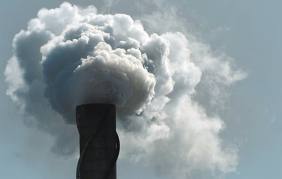 “There is a danger that, in trying to encourage major emitters to sign up to a new agreement or to bridge the Kyoto legal gap, New Zealand might commit itself to something short of a global deal that binds us to making economic sacrifices which are not reflective of fair burden sharing.” So wrote David Venables, executive director of the Greenhouse Policy Coalition, in the NZ Herald this week.
“There is a danger that, in trying to encourage major emitters to sign up to a new agreement or to bridge the Kyoto legal gap, New Zealand might commit itself to something short of a global deal that binds us to making economic sacrifices which are not reflective of fair burden sharing.” So wrote David Venables, executive director of the Greenhouse Policy Coalition, in the NZ Herald this week.
I described the Greenhouse Policy Coalition in a post last year, but I’ll briefly recap. Its members come from a range of New Zealand industry and sector groups covering the aluminium, steel, forestry (including pulp and paper), coal, dairy processing and gas sectors. They include Fonterra, NZ Steel, the Coal Association, Solid Energy, NZ Aluminium Smelters Ltd and others. They are not deniers of climate change and express the cautious opinion that “there is sufficient scientific evidence to warrant the adoption of appropriate precautionary public policy measures”. However their emphasis is strongly on policy which protects what they regard as New Zealand’s international competitiveness.
Continue reading “The counsel of failure: Greenhouse Policy Coalition on Durban”

 How better to journey to the
How better to journey to the  My attention was caught by a press release this week from the NZ Wind Energy Association (NZWEA) announcing the results of an Infometrics
My attention was caught by a press release this week from the NZ Wind Energy Association (NZWEA) announcing the results of an Infometrics 
 I was pleased to see the Labour Party’s
I was pleased to see the Labour Party’s